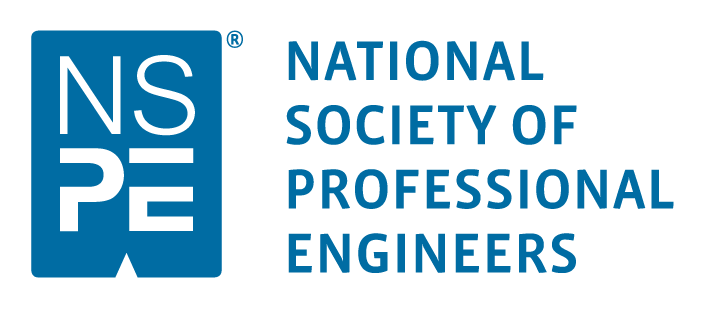NJDEP Permit Compliance Isn’t Just a Good Idea… It’s the Law!
Commercial establishments and facilities in New Jersey have to comply with the New Jersey Department of Environmental Protection (NJDEP) permit regulations. The purpose of NJDEP permits is to direct firms to follow legislation that addresses a range of issues like air quality, water, land use, waste management, etc. Following these rules is important to protect people from risks of dangerous exposures and to prevent catastrophic environmental accidents.
However, non-compliance still occurs across various types of businesses and company sizes. One common reason for failing to comply with NJDEP is the increasing complexity of the requirements and reportable emissions when acquiring permits. Additionally, environmental laws usually entail companies investing in costly equipment or systems to meet the required emission limits.
For example, applying for an air permit requires companies to undertake various steps. Primarily, they have to determine which permit applies to their operations and equipment – the General Permit or a Preconstruction Permit. Identifying the appropriate permit involves an evaluation of the facility’s equipment which can be time-consuming and complex.
Once the company knows which permit it needs, the permit application is required to be completed and submitted to the NJDEP. This part is tricky because the applicant needs a comprehensive understanding of the New Jersey state rules as well as the federal laws about air pollution. Then, they also have to follow the Air Pollution Act requiring covered entities to incorporate State-Of-The-Art (SOTA) air pollution control.
Going over the steps to comply with NJDEP requirements is a challenging endeavor. Missing details or misapplying the rules can lead to violations. Non-compliance could lead to fees, penalties, criminal liability, loss of license to operate, or company closure.
Although it is not easy to obtain, NJDEP permit compliance is necessary. The intricacy of the process excuses no one from following the law. So businesses have to learn or acquire professional support to comply with the regulations.
NJDEP Permit Compliance Is Not a Choice but a Requirement
Environmental laws and regulations are put in place to implement controls on activities that could threaten the environment and those occupying it. For example, entities that use equipment or processes that emit pollutants into the atmosphere need air permits to operate in New Jersey. This permit is required to comply with the air quality requirements that the state has set.
Although the main goal of businesses is to earn a profit, they also have the responsibility toward the people they employ, the community, and the environment. If their operations pose environmental risks, following the regulations helps minimize and monitor their impact.
Acid rain, smog, and the greenhouse effect are a few of the harmful consequences of emissions from factories, power plants, and various engines. These pollutions have far-reaching health and environmental repercussions like lung disease and climate change.
The most important objective of environmental compliance is to avoid drastic environmental effects. NJDEP permit compliance also aims to protect the welfare of the people working for the company, as well as those living within the area.
Entities that operate or use equipment in New Jersey are required to comply with its rules. In exchange for the ability to conduct their business, companies have to play their role in protecting the people and the environment’s health. Adhering to environmental regulation but especially NJDEP permit compliance, helps organizations attain this goal.
Benefits of Compliance With NJDEP
Having an NJDEP permit means the company follows the standards in handling machinery, operations, and processes that emit pollutants. But in addition to having legal permission, NJDEP permit compliance also offers advantages for the company.
- Environmentally sound reputation
A report by IBM showed that six out of ten customers are willing to change their purchasing habits to reduce environmental impact. Of the respondents who say that sustainability is extremely important to them, more than 70% are willing to pay a 35% premium on environmentally responsible brands.
Sustainability is now a contributing factor to consumer behavior. People and organizations prefer brands that demonstrate commitment and adherence to environmental laws. Therefore, maintaining NJDEP permit compliance is one step to building the company’s positive reputation and opportunities for more revenue.
- Compliance can be a legal defense against incidents
Valid permits have been accepted by authorities as grounds to reduce the legal responsibilities of an organization in environmental incidents. This is because compliance shows attentiveness to following regulations. In contrast, companies are more likely to get heavier sanctions if their record conveys indifference or disobedience to permit requirements.
Professional Engineers for NJDEP Permit Compliance
NJDEP permit compliance can be a stressful and frustrating affair. There is so much to assess, learn, and complete to attain full compliance. But as it is the law, companies have to follow and step up their compliance management to avoid issues and setbacks in their business operations.
Fortunately, businesses do not have to face it alone. Lockatong Engineering assists in obtaining NJDEP permit applications, inspections, and other requirements efficiently. Lockatong Engineering will prudently handle permit compliance for each client’s project and evaluate operations for potential environmental issues.
The firm employs qualified NJDEP permit consultants to support commercial companies and facility managers in their objective to be fully compliant with NJDEP regulations. Lockatong Engineering’s NJDEP air permit consultant has the skills, knowledge, and experience with the agency’s ever-changing regulations. With Lockatong air permit services, companies can save valuable time and effort navigating intricate NJDEP rulings.
Leave the stressful air permit processing to professionals. Contact us to learn more about our environmental consulting and evaluation services today.








